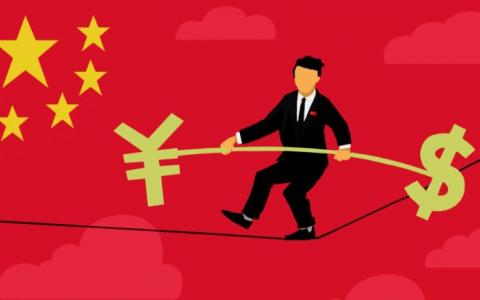
(Cheddar) Mark Cuban, the outspoken billionaire investor, understands President Trump's desire to penalize China for its trade practices and theft of American IP. But he vehemently disagrees with the resulting tariffs, which escalated at midnight Thursday in the final hours of negotiations.
Cuban told Cheddar of his novel idea for ending the trade war that allows the U.S. to maximize its leverage over China while continuing the pressure that the tariffs are putting on the world's second-largest economy. The best part? If executed properly, it would shield American consumers and small businesses, who are being unfairly penalized by the tariff tit-for-tat, Cuban said.
"I think we're fighting the wrong battle," he said in an interview from the SALT Conference in Las Vegas. "We're missing the ball."
Cuban's idea boils down to using the power of the booming IPO market in the U.S. to issue constraints on Chinese companies that want to get a piece of the action and IPO on American exchanges. China has hundreds of publicly-traded internet companies ー dozens of which are listed in the U.S. Baidu, Tencent Music and Alibaba alone account for 74 percent of the combined market cap of Chinese public tech companies, according to the China Internet Network Information Center.
Combined, Chinese companies trading in the U.S. have a combined market cap of $1.42 trillion, according to Cuban. "That's money in the bank of Chinese companies to grow their organizations," he said, noting that many of them are owned at least in part by the Chinese government. That is untapped leverage that he thinks the White House could use to greater effect than tariffs.
What would happen if the SEC put a halt on all Chinese IPOs until a deal was reached, Cuban wonders. Or required that Chinese firms issue stock to American shareholders in order to list on the NYSE or Nasdaq?
"It's a different approach that should be examined," Cuban said. And while there would certainly be downstream market effects, it would not hurt farmers, shoppers, aluminum makers, or any other countless Americans whose pocket books are being affected by the tariffs.
"I don't think the tariffs really have the impact [Trump] is looking for," Cuban said.
Cuban also opined on the U.S. companies getting in on the IPO rush ー namely Uber ー saying he thought the company was five years too late in tapping the public markets.
Public offerings are useful in providing growth capital to new companies, he said. But Uber, Pinterest, Lyft, and other recent IPOs "aren't young, growing companies ー these are old guys."
"If you're growing and you're a company that has a unique element to it, you should be going public three, four, fives years in," Cuban said. "Not 10, 11, 12 years. That's crazy."



